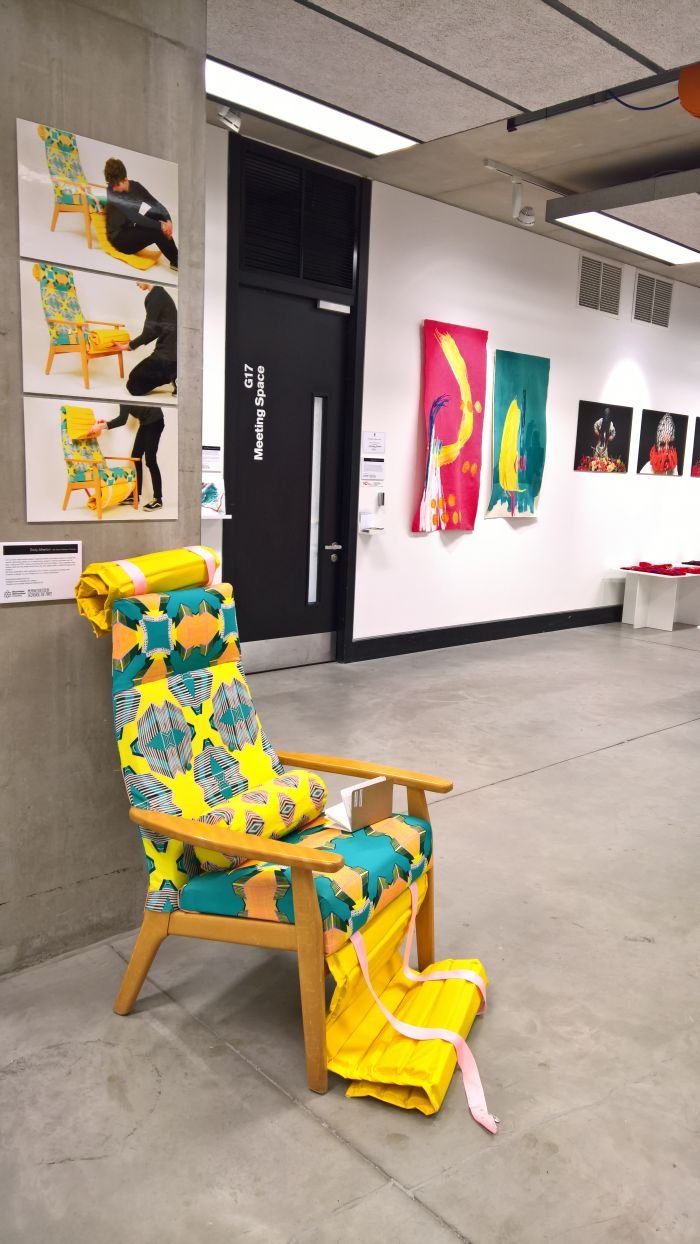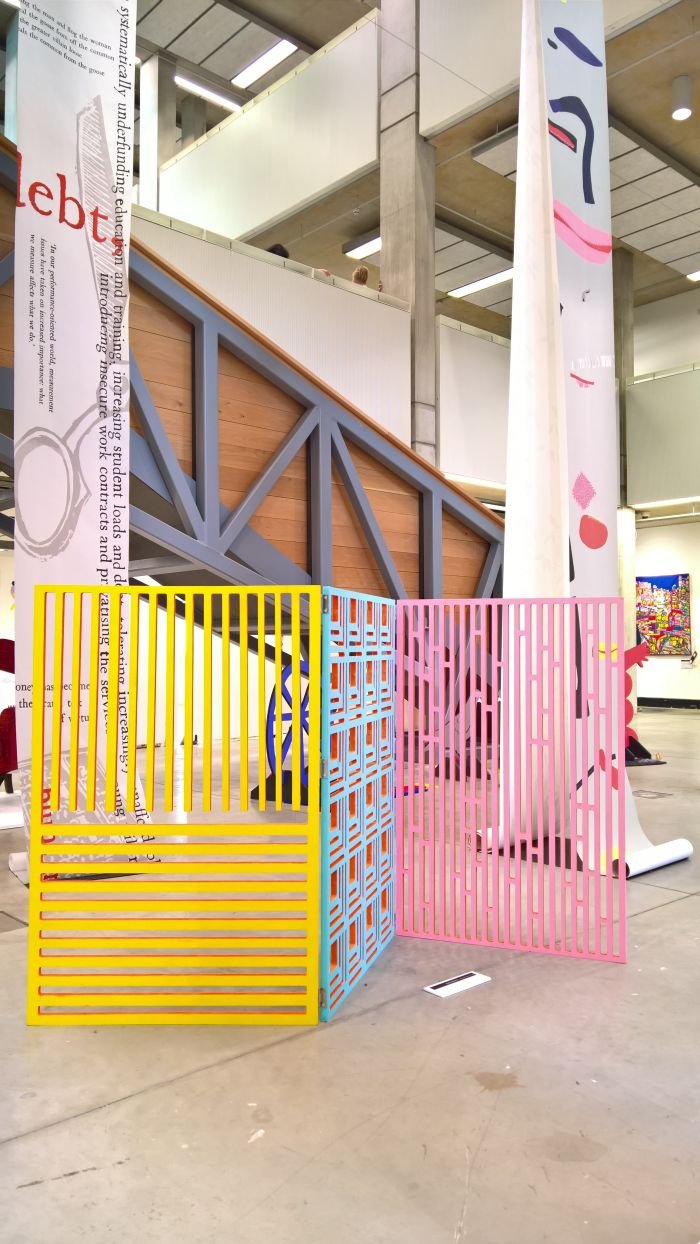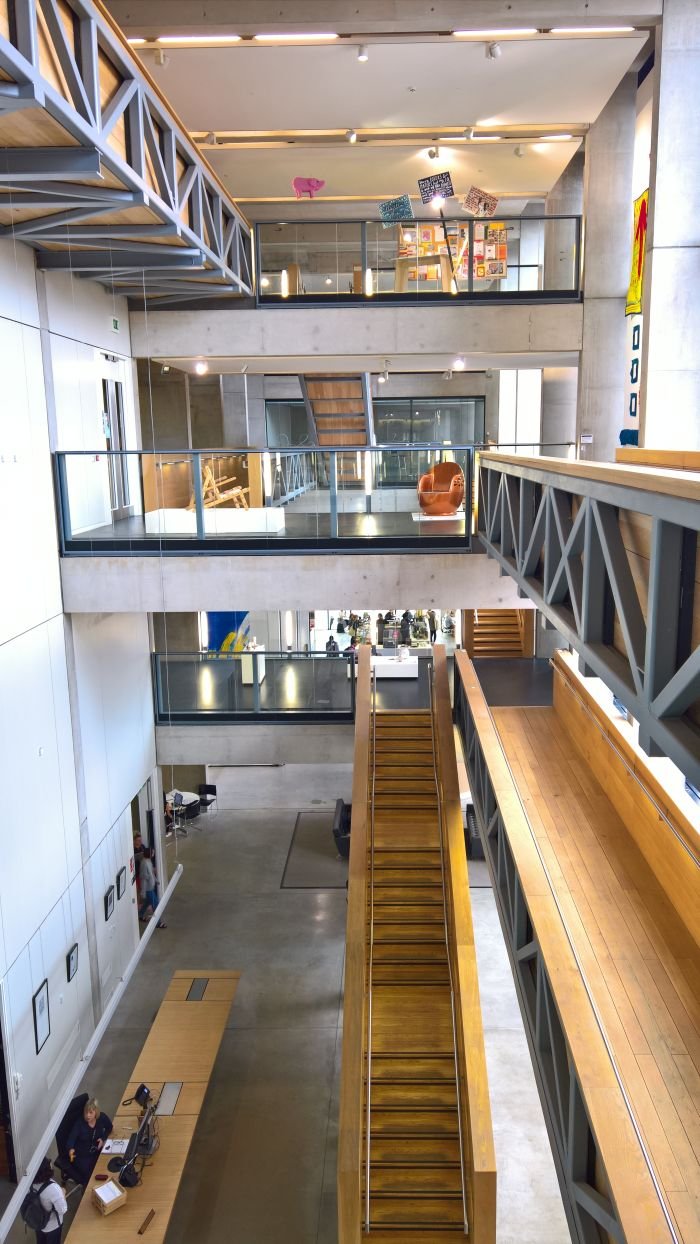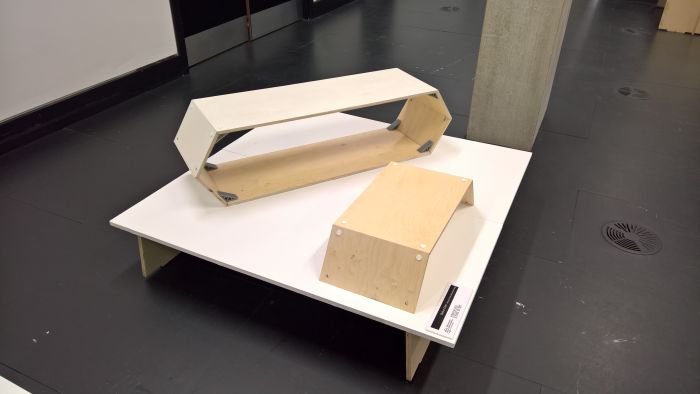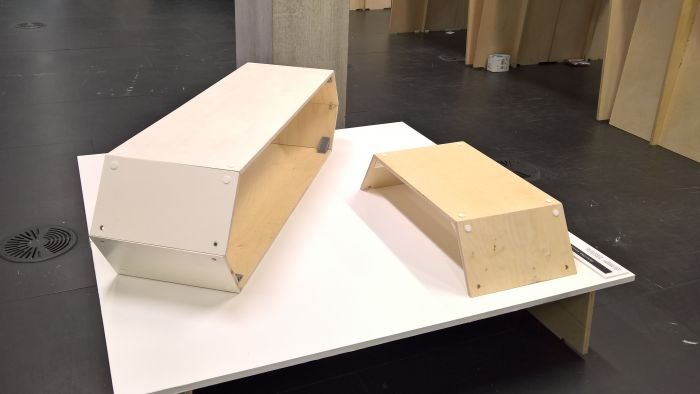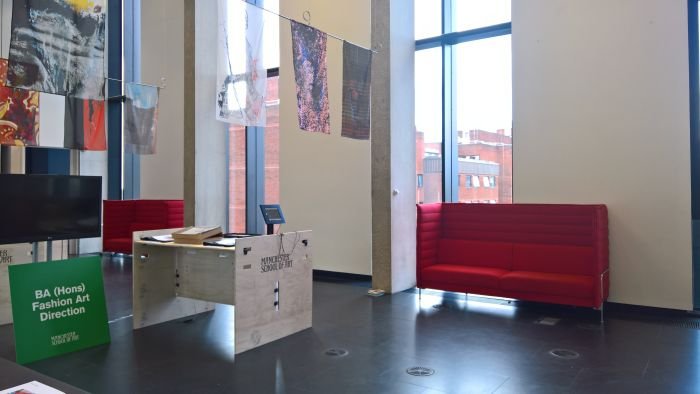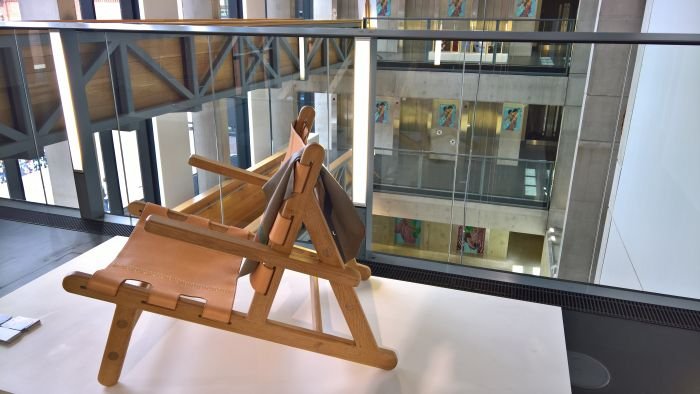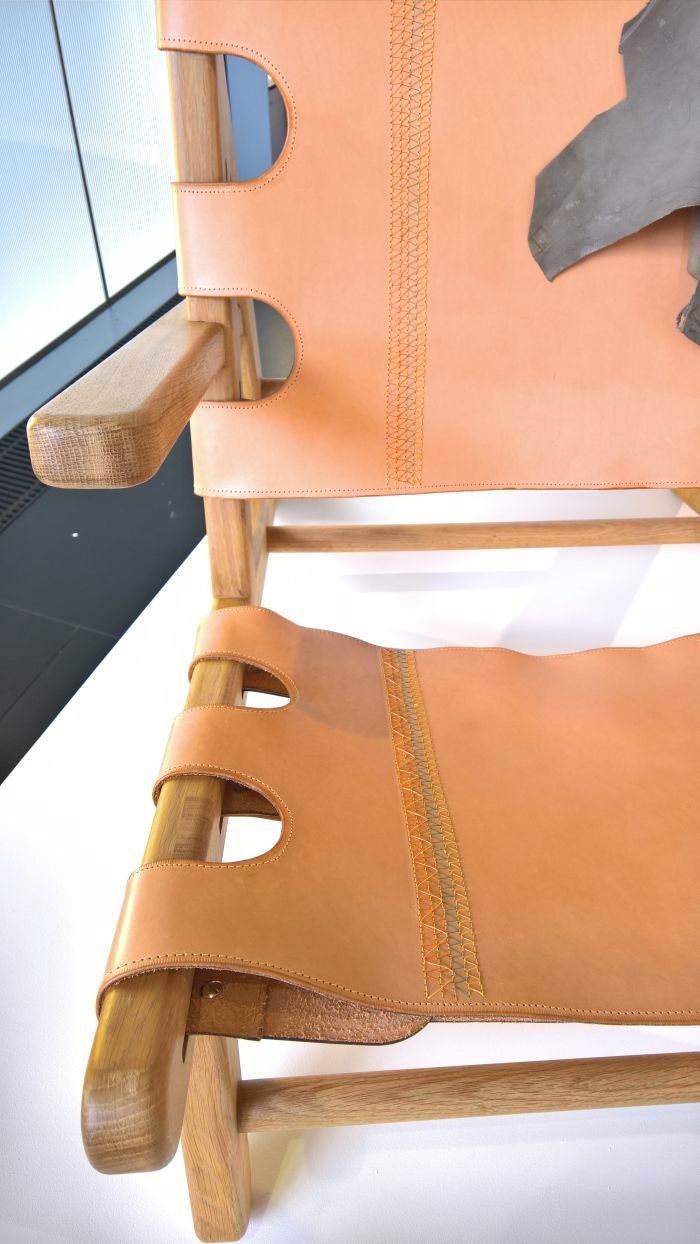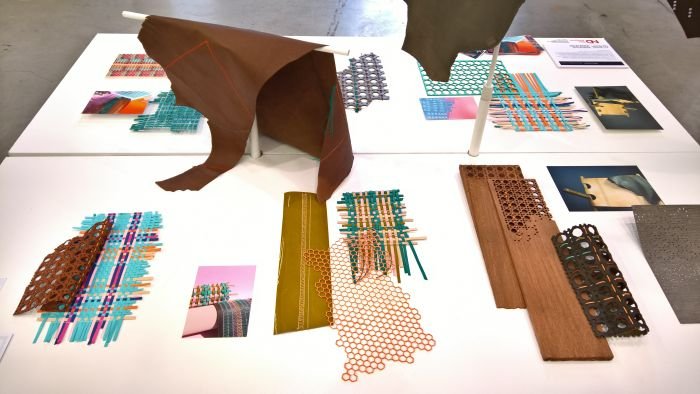The 2018 Manchester Art School Degree Show was held under the title "Take Flight"
But, .... and you're ahead of us, we know... how many of the projects would cause us to soar with delight. How many to flee in foreboding and terror......?

Established in 1838 as Manchester Government School of Design, the second of a family of design schools initiated by the then government to help promote and support contemporary industry, the institute was renamed Manchester School of Art in 1853 and the following year was integrated into the Royal Manchester Institution, with whom it had shared a building since 1838.
Following the school's transfer to Manchester municipal authority in 1892 it, somewhat inevitably given the nature of the period, underwent numerous changes in name and focus before in 1970 it merged with the College of Commerce and the John Dalton College of Technology to become part of the newly established Manchester Polytechnic and where it formally existed as the Faculty of Art & Design.
The transformation of Manchester Polytechnic to Manchester Metropolitan University in 1992 ultimately led in 2007 to the Faculty of Art & Design being re-re-christened Manchester School of Art; an institution which today is comprised of four departments, Art, Design, Architecture and Media, the latter including Manchester School of Theatre, and which is home to some 3,700 students studying courses as diverse as Textiles in Practice, Graphic Design, Interior Design, Fashion and Three Dimensional Design.
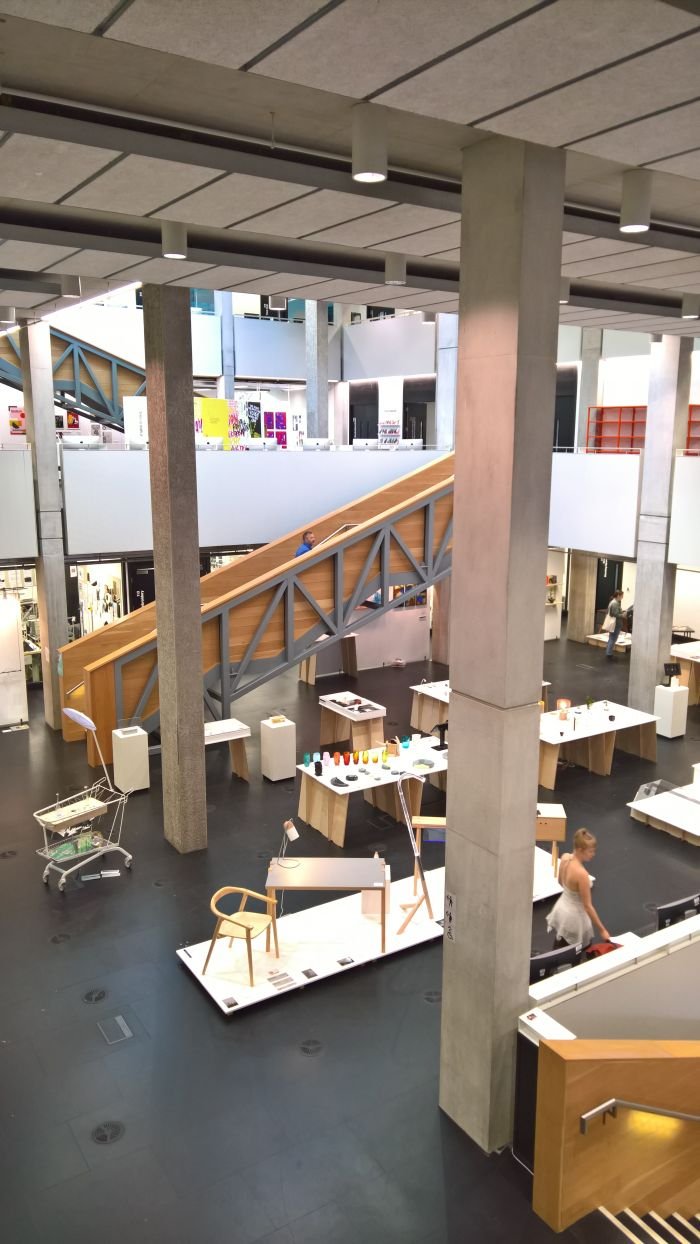
The 2018 Graduation Show was held against the background of re-organisation of the Design Department; 2018 being the last year students are being admitted for the Bachelor in Three Dimensional Design, the course being replaced from 2019 onwards by two new courses: Product Design & Product Design and Craft. While the last can be considered an interesting nod to Bauhaus Weimar's centenary year, we can't say we're entirely happy, not just because the term "Three Dimensional Design" so neatly sums up what so many designers tell us first attracted them to the profession, why so many moved on from an earlier interest in graphics, photo and illustration, but we also consider the "....and craft" an unhelpful reaction to a contemporary fascination with craft; however, we don't doubt for a minute Manchester School of Art have considered the move carefully. And certainly to judge by the 2018 Three Dimensional Design projects the current students have a healthy understanding of craft in a contemporary context.
Amongst the projects on show in context of Taking Flight Joseph Bazalgette experimented with the forming process, both in terms of moulds for glass blowing, but also through the development of a special jig for moulding laminates; Francesca Paolini created a collection of ceramic objects inspired by, and in their material composition, physically containing, different regions of the island of Elba; while with his CNC Armchair Andrew Hamilton responded to his considerations on craft in the digital age, including the question "how furniture should look as we move further in to the digital age?" A question more observant readers will already have linked back to the discussions of the late 19th/early 20th centuries as industrialisation and new materials challenged established conventions on form, aesthetics and production processes, and as most recently discussed in context of the Gemeentemuseum Den Haag's exhibition Art Nouveau in Nederland.
To judge by the CNC Armchair, and that is at this moment all we can judge by, Andrew favours an adherence to established forms, albeit with the utilisation of new technology to assist with production. Elsewhere in Take Flight alternatives could be found, most notably a variably seating/shelving/table system developed by Dishun Chen and which is all about the connector: a 3D printable form which allows for the connecting of any number of standard, very basic geometric plywood forms, to create a variety of differing furniture typologies. And thereby a system which uses new technology as the basis for the construction system, and in doing so moves the well-established, and eminently logical, modular construction system on from a commercial system to an open system and one where the designer is more a service provider than giver of form.
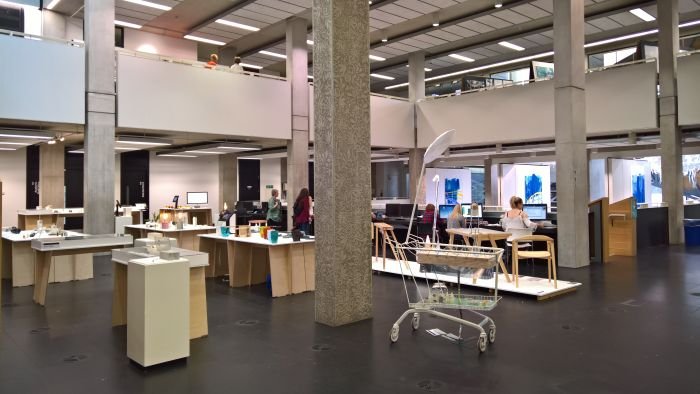
It wasn't, however, all crafts on show amongst the Three Dimensional Design graduation projects, Elen Parry, for example, proposed with her HeX earbud a hearing aid which not only enhances but also protects hearing, making it an object for everyone; with Connect + Build + Play, Chloe Knights aimed to encourage a better understanding of materials through active interaction; while with ReminiScent, a project which envisaged a future reality in which climate and environmental change means supermarkets sell aromas rather than actual food, Ella Mathews Boston not only very neatly questioned society's current direction, but also neatly underscored how fragile the connection is between designer and brief. Which isn't a complaint. Far from it.
Elsewhere, beyond Three Dimensional Design, the Textiles in Practice course provided for a few interesting projects, including the Börike Collection from Olivia Dean based on a, theoretical, cooperation between herself and the Danish designer Børge Mogensen involving a re-working of his 1950 Hunting Chair. Not, we hasten to add, because Olivia is the opinion that Børge should have consulted her about his Hunting Chair, but much more as exploration of what textiles, materials and process can contribute to an object, Olivia's intervention brining a touch of ornamentation to the leather and wood chair through the addition of coloured, inter-layered stitching, and as a project was as much about the development of the stitch as it was the final result.
While her colleague Emily Atherton produced a collection of work that we get the feeling we should be digging a lot more than we are, a collection which appealed to us, but is/was unable to reveal the reason to us. But one day will. There was, for example, an armchair to which Emily had added a mat that rolled out allowing you to sit on the floor, and while, yes, we can see the logic of it, we couldn't see the necessity of it, and necessity is a key component of the logic of any idea. Or is that just us? As we say, we'll get there eventually. In addition Emily presented a collection of room dividers which had clearly started life as abstract 2D designs before the idea planted itself that maybe, just possibly, one could do something 3D with them.
The unplanned transformation of a two dimensional idea into a three dimensional object via the most logical process, in the most appropriate material and at the most practical scale, why does that sound familiar.....
Full detailson the Manchester School of Art can be found at www.art.mmu.ac.uk
And all 2018 Manchester School of Art Graduation Projects can be found at http://degreeshow.mmu.ac.uk/2018/
